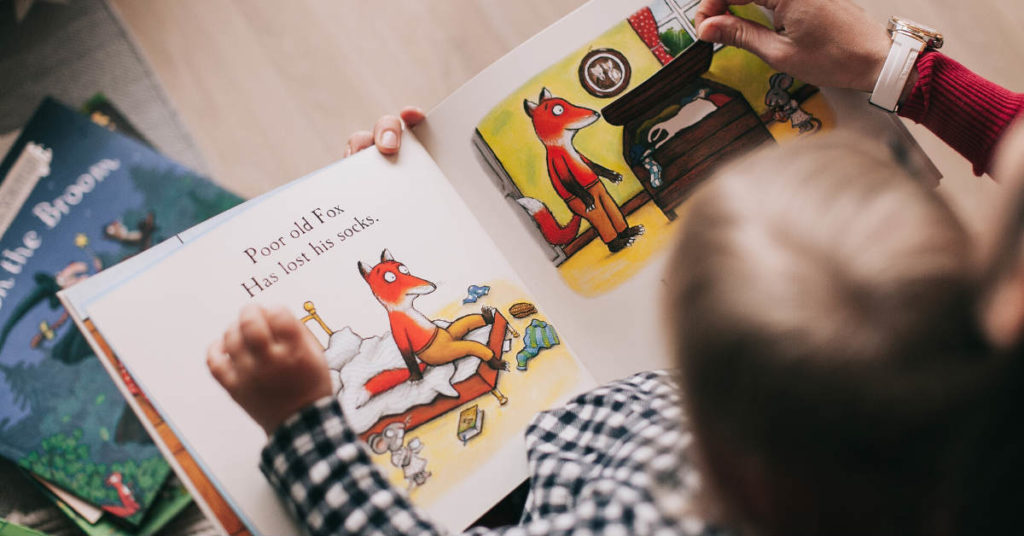13 Jan

Do you know that there are over 30 million illiterate adults in America? Although children are touted as the nation’s future builders, illiterate parents can pass this illiteracy onto their children. When children have illiterate parents, there’s a 72 percent chance of children having low literacy as well. That’s why nonprofit literacy organizations, such as Reading Rockets or Reading is Fundamental, push for initiatives, like creating short articles for kids, to combat this.
That said, reading is essential during a child’s or baby’s developmental stages. Experts say reading aloud to your kids has some benefits. However, letting your kids read short articles is equally beneficial.
But how do you get kids to read short articles or stories? Isn’t there a special formula that hooks this type of audience?
We know how tough a writer’s job can be. That’s why we’ve compiled useful tips on how to write short articles for kids that will cultivate their love for reading. Plus, we’ll throw in some educational kid-friendly blogging websites too!
How to Write Short Articles for Kids

1. Think of relevance
Kids will certainly not enjoy some topics that adults love. When writing short blogs for kids, it’s important to sprinkle an ounce of relevance into the topics. Why not a ton, you ask?
Well, writing about something you wouldn’t want to read as a child would surely reflect on the outcome. If you’re writing short stories for kids, pick a genre you love to write.
If you’re writing short articles, pick something odd or edgy that you and kids would love to read as well.
2. Involve the senses
Children love to hear about fantastic stories, similar to those they see on television. One way to let them live vicariously through your short stories is to involve their senses.
Remember:
Show, don’t tell. Use concise descriptions that paint a picture.
3. Craft engaging introductions
Kids easily get bored. When putting reading and playing side by side, we know children prefer the latter.
One way to hook children is to engage them in the first few sentences of your article through storytelling. Create a riveting scenario, mention an interesting fact, or refer to a recent viral story.
4. Empower them
Kids like it when they take control of the situation. Camping develops children’s leadership skills because they get to a chance to lead the pack one way or another.
Like camping, let your short articles teach them empowerment by creating scenarios where children are the primary protagonists.
Cite opposing scenes where kids can compare the conflict and the resolution to the conflict. Then instead of adults, let younger characters resolve the dispute so your readers can put themselves in the same situation.
5. Create relatable characters
Sure, picking a fiction or fantasy genre is apt, especially when you’re publishing books for kids. However, make sure you include characters that children can relate to.
Take a cue from the top books for kids of all time like Harry Potter, Matilda, or Charlie and the Chocolate Factory. The common denominator between these books: A tough young character that beats all odds!
6. Trim unnecessary words
Though it’s better to paint a picture and to be descriptive as much as you can, overdoing it is a no-no. Keep your short articles for kids simple so they can grasp the context thoroughly.
Steer clear of using too many adjectives or adverbs. And trim all redundant words, phrases, or sentences.
Although it’s advisable to use simple terms, don’t “dumb down” everything. Putting in a difficult word every now and then enhances kids’ vocabulary. After all, the internet is there at their disposal if they need to look up a definition.
7. Make it highly visual
One way to keep children engaged in reading blogs and even the news is by including stimulating images. Children are compelled to colors, pictures, figures, shapes, and whatnot.
That said, integrate high-quality graphics that catch your audience’s attention. This is useful, especially if you’re writing about animals, nature, or places.
8. Build the moral of the story
One of the reasons why parents get their children to read various resources is to teach them about life’s lessons. Aside from developing kids’ cognitive abilities, there is a lot to learn in children’s short stories or even picture books.
In fact, experts suggest that reading flourishes empathy in children and prospers emotional intelligence.
Top Websites with Child-Friendly Articles

Kids Discover
If your children are hungry for knowledge, this site is perfect for feeding their brains. They have short blogs for kids about past and present inventions, histories, and discoveries.
National Geographic
Watching National Geographic on television might seem more appealing. But they also have engaging blogs on all things animals, environment, and more.
Dogo News
If you want your kids to be more mindful of what’s going on in the world, the Dogo News is a suitable platform. It centers on several current news and affairs that are tailor-fit towards a younger demographic.
How Stuff Works
For mommies who are continually struggling with answering bizarre questions from their little ones, this website could be a lifesaver. How Stuff Works shows how everything is made; from hotdog to car making, the site writes concise and comprehensible blogs for kids.
Super Healthy Kids
For the little chefs at heart, Super Healthy Kids is the perfect site to channel their inner Gordon Ramsey. It offers easy and kid-friendly recipes that are healthy and gluten-free.
Kids Read
Here’s a child-friendly site that introduces children to short articles, books, and fantastic authors in children’s literature. It provides book reviews, a list of authors, blogs, and several book suggestions for kids of different age ranges.
Kids Activities
Let’s not forget our little DIYers! Kids Activities has a section called “5 Minute Crafts For Kids” on its website that offers kids some do-it-yourself articles. From creating paper plate masks, pumpkin carvings to Halloween pudding cups, and candy bracelets, this is a fun channel for kids to unleash their creative juices.










